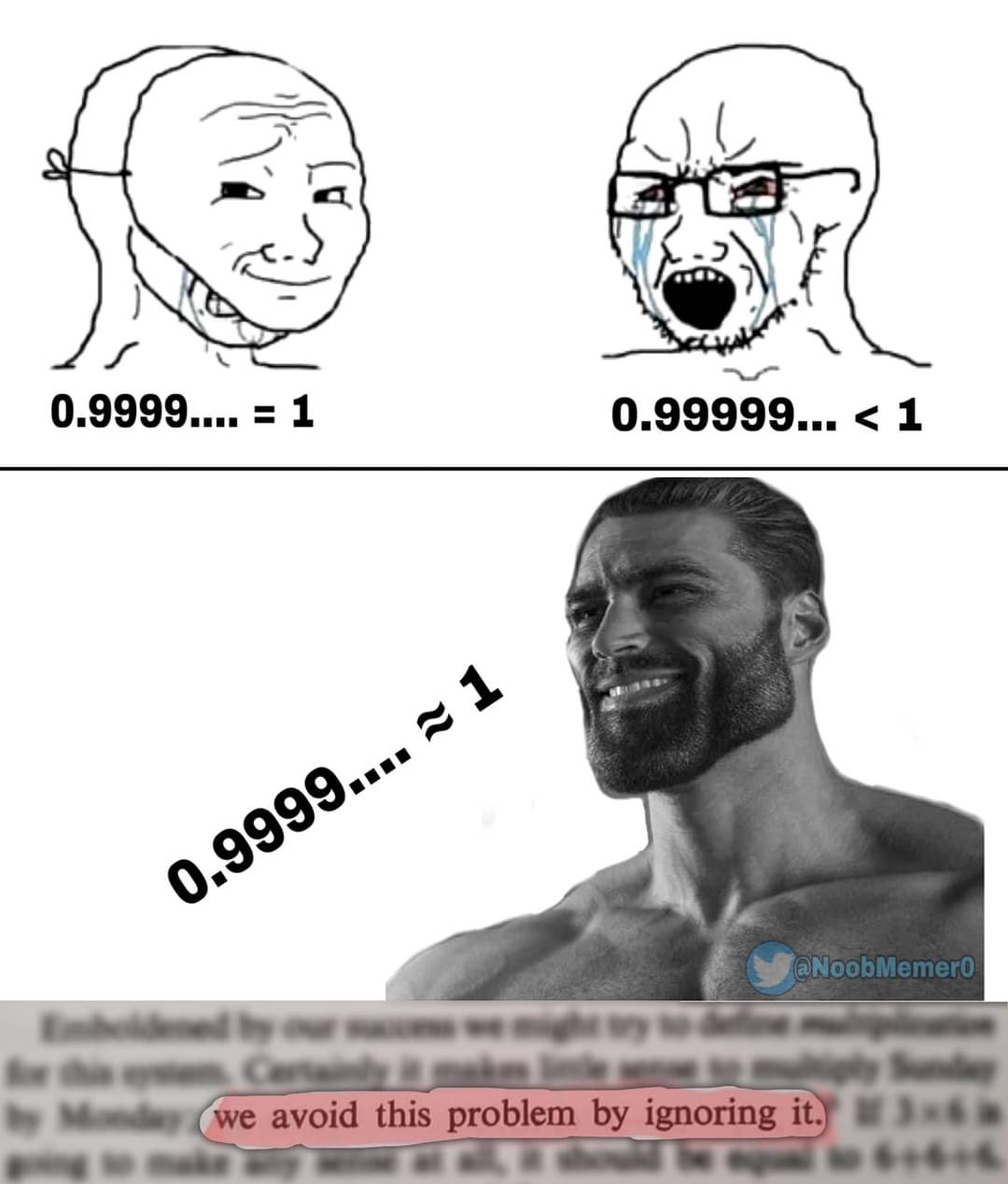this post was submitted on 27 Jun 2024
783 points (95.2% liked)
Science Memes
11495 readers
3187 users here now
Welcome to c/science_memes @ Mander.xyz!
A place for majestic STEMLORD peacocking, as well as memes about the realities of working in a lab.

Rules
- Don't throw mud. Behave like an intellectual and remember the human.
- Keep it rooted (on topic).
- No spam.
- Infographics welcome, get schooled.
This is a science community. We use the Dawkins definition of meme.
Research Committee
Other Mander Communities
Science and Research
Biology and Life Sciences
- [email protected]
- [email protected]
- [email protected]
- [email protected]
- [email protected]
- [email protected]
- [email protected]
- [email protected]
- [email protected]
- [email protected]
- [email protected]
- [email protected]
- [email protected]
- [email protected]
- [email protected]
- [email protected]
- [email protected]
- [email protected]
- [email protected]
- [email protected]
- [email protected]
- [email protected]
- [email protected]
- [email protected]
- !reptiles and [email protected]
Physical Sciences
- [email protected]
- [email protected]
- [email protected]
- [email protected]
- [email protected]
- [email protected]
- [email protected]
- [email protected]
- [email protected]
Humanities and Social Sciences
Practical and Applied Sciences
- !exercise-and [email protected]
- [email protected]
- !self [email protected]
- [email protected]
- [email protected]
- [email protected]
Memes
Miscellaneous
founded 2 years ago
MODERATORS
you are viewing a single comment's thread
view the rest of the comments
view the rest of the comments

Is it true to say that two numbers that are equal are also approximately equal?
"Approximately equal" is just a superset of "equal" that also includes values "acceptably close" (using whatever definition you set for acceptable).
Unless you say something like:
a ≈ b ∧ a ≠ b
which implies a is close to b but not exactly equal to b, it's safe to presume that a ≈ b includes the possibility that a = b.
Can I get a citation on this? Because it doesn't pass the sniff test for me. https://en.wikipedia.org/wiki/Approximation
Sure! See ISO-80000-2
Here's a link: https://cdn.standards.iteh.ai/samples/64973/329519100abd447ea0d49747258d1094/ISO-80000-2-2019.pdf
ISO is not a source for mathematical definitions
It's a definition from a well-respected global standards organization. Can you name a source that would provide a more authoritative definition than the ISO?
There's no universally correct definition for what the ≈ symbol means, and if you write a paper or a proof or whatever, you're welcome to define it to mean whatever you want in that context, but citing a professional standards organization seems like a pretty reliable way to find a commonly-accepted and understood definition.
Tbh I'm just impressed you:
A) knew there was an iso standard
iii) posted it in respectful manner, and
e) are correct.